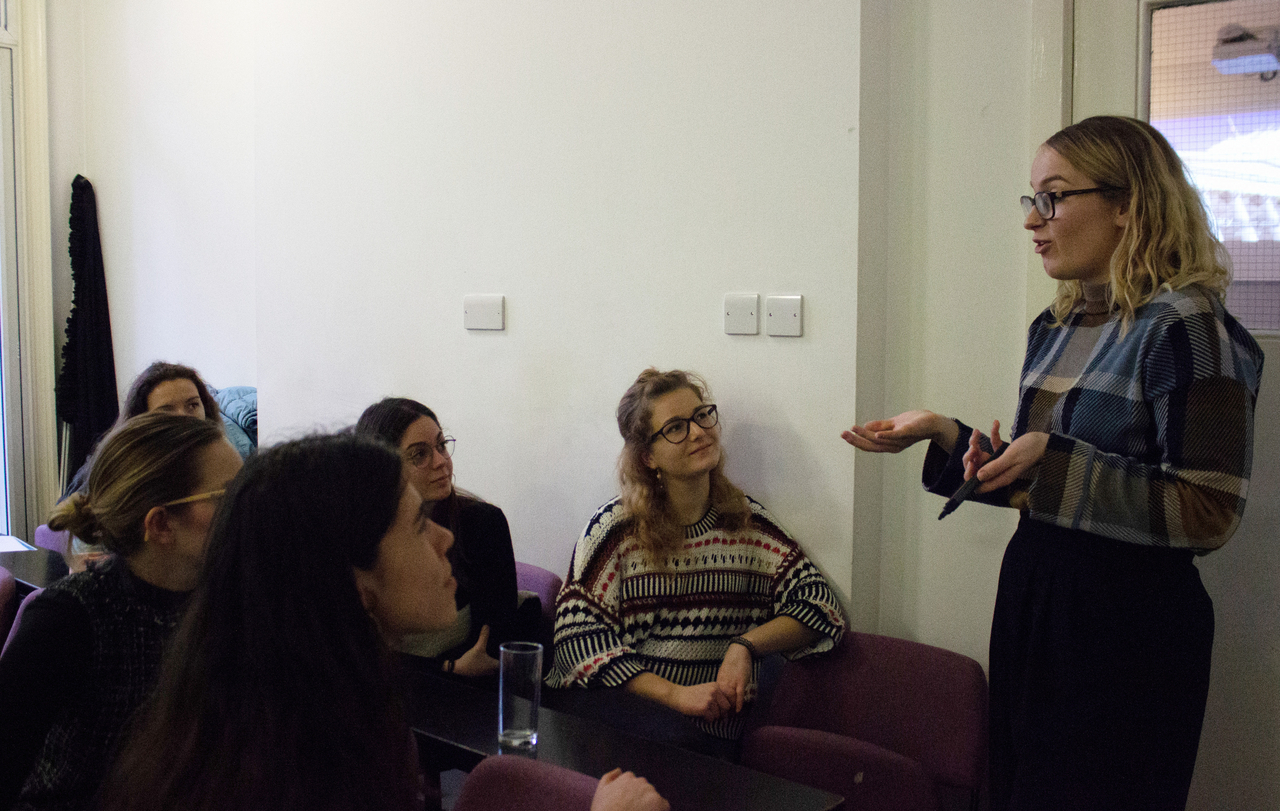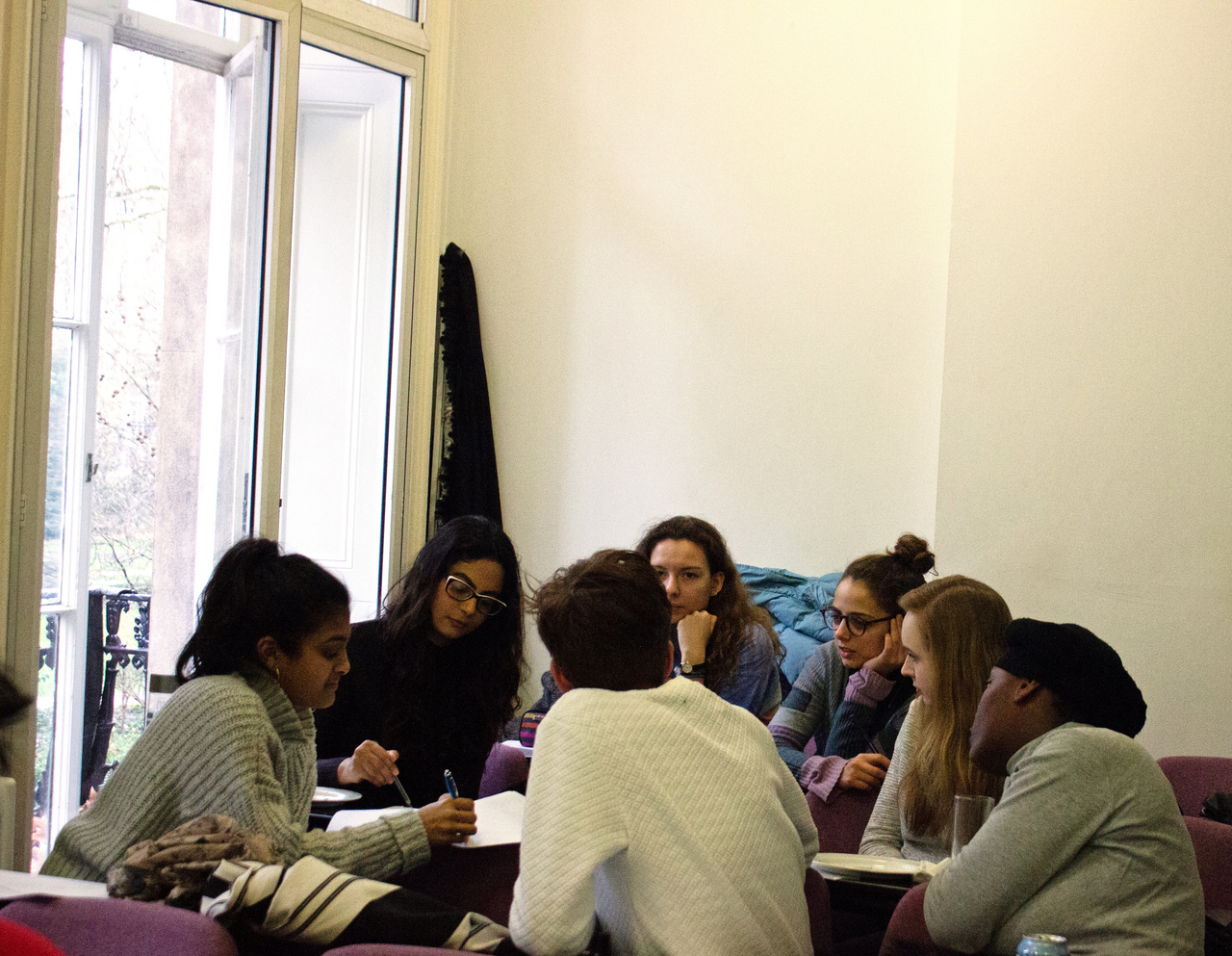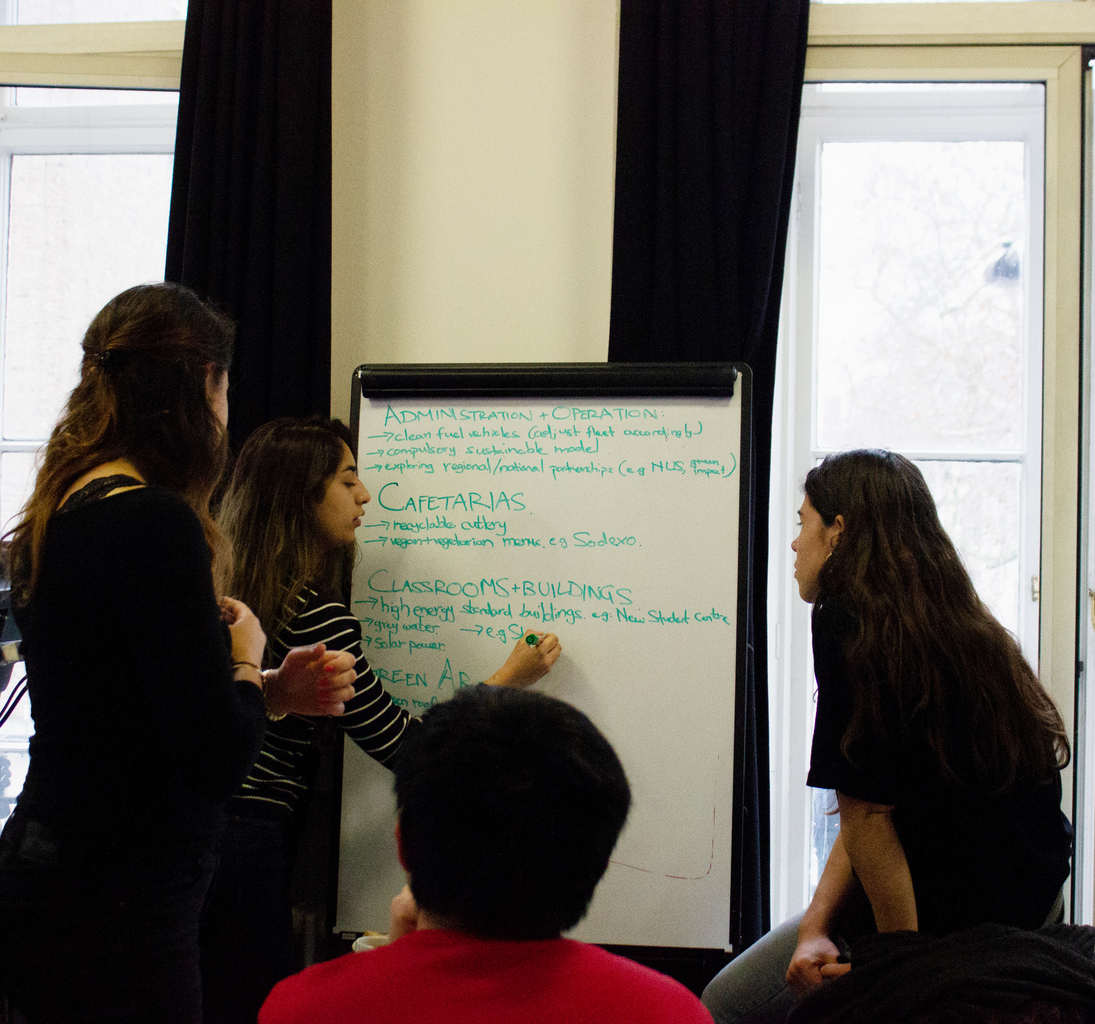UCL is a large university, composed of myriad departments and administrational units that all function independently under the name of one university. Its buildings are spread all around Bloomsbury, and each department (ranging from Life Sciences to Archaeology) has its own activities that have different requirements. Each department at UCL generates different amounts and types of waste, and their carbon emissions are a result of the field-specific activities they carry out. If anybody were to attempt university-wide measures, how could they account for the diversity of activities at UCL?
That’s why I’m standing in a tiny room full of enthusiastic students on a Friday afternoon.

Green UCL is training this year’s cohort of Green Impact Project Assistants – students from all of the university’s different departments that will try to take away key learnings from today and understand how they can mould green initiatives in collaboration with faculties to make more sustainable decisions.
Katie Jepson, one of the speakers that afternoon, told me she began her career in sustainability as a Green Impact Project Assistant. Those who become Project Assistants have the opportunity to work with different administrative or academic units (not necessarily their own) to create projects that will help UCL be more sustainable in the long term. The initiatives range from reducing paper usage to pledging to vegetarian catering for events, and the room is buzzing with ideas.


If there’s one thing Katie wants students to take away from this training today, it’s that it’s not necessary to have a career in sustainability in order to be sustainable; if students can incorporate aspects of sustainability into the practices of whatever field they choose, that is a step towards a greener future.
Written by Anoushka Gandhi - UCL Photojournalist.
Browse our Volunteering Directory for other roles related to sustainability and the environment.